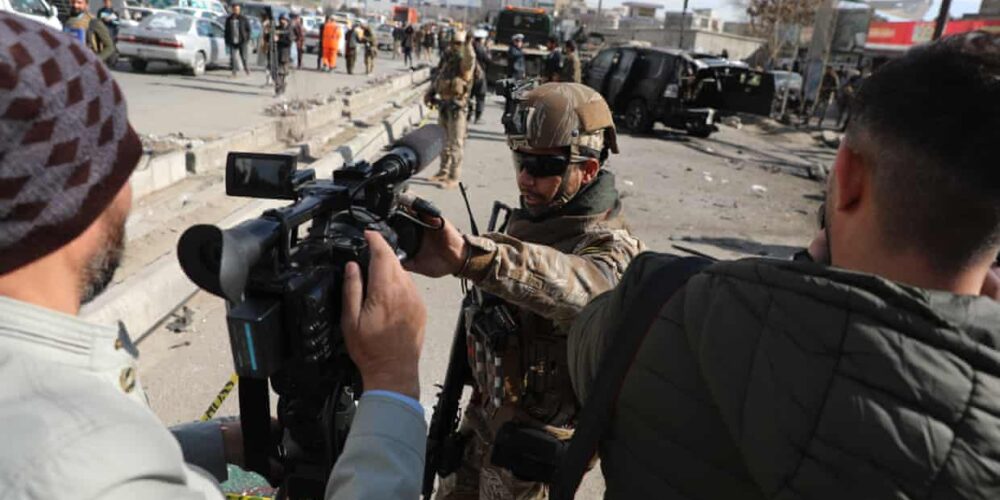One would imagine that the chaotic scenes that accompanied the ending of the NATO occupation of Afghanistan would be followed by reflection and analysis in the Irish media. That was not the case.
Their initial concern was the threat to women’s rights under the Taliban—and of course the threat the Taliban pose to Afghan women is real. However, the overthrown puppet government and the NATO troops in Afghanistan were not champions of women’s rights. Tens of thousands of women were killed and homes and livelihoods were destroyed by the occupation forces and their Afghan puppets.
Nowhere in the media was there any reference to these facts, nor any mention of the full equality enjoyed by Afghan women under its communist government before the Western subversion that ultimately led to the Taliban taking power in the 1990s.
The media then turned to the fate of those Afghans who collaborated with the occupation and who may now have to face the consequences of their actions. No analysis of what collaborating with the occupation entailed: all we got was a reprise of the NATO handouts churned out daily by the BBC and the British press. Once the military occupation ended, Afghan collaborators were surplus to requirements, with many of them being abandoned by NATO.
Worse was to come. The call went out to send Irish special forces to Afghanistan to repatriate Irish citizens still in Kabul. It was suggested that Free State military officers would be able to help because of links they had forged with NATO troops in Afghanistan.
Instead of questioning the role played by Irish troops in the illegal occupation, the media called for the procurement of transport aircraft for future military adventures. An RTE reporter on “Prime Time,” while interviewing Simon Coveney, made the ridiculous comment that Ireland could not be a credible member of the UN Security Council because it lacked this “essential” military equipment. The Business Post went further and suggested that the failure of the NATO invasion and occupation meant that Ireland should now increase its military budget and accept its share of responsibility for “Europe’s security.”*
It also stated that Ireland was not a protagonist in the NATO war in Afghanistan. But Irish Rangers were deployed with NATO troops in Helmand, and Shannon Airport was a major link in the supply of occupation troops to Afghanistan. That’s being a protagonist.
The main point of the Business Post editorial was the need for Ireland to build up its military capabilities and become more integrated in “European defence.” It claimed that Ireland must be prepared to defend its vital interests. What vital interests? Where does the threat to Ireland come from? Over the last fifty years the only state that engaged in bombing and murder in the 26 Counties was the United Kingdom, our gallant “ally” in Afghanistan.
And it was a Tory MP, Priti Patel, who urged the British government to use the threat of a food embargo to force the Irish government to accept British Brexit proposals. Perhaps she hoped for a rerun of An Gorta Mór. It was the EU Commission that forced the Irish state to accept liability for the debts of European banks.
It is in our vital interest to break away from imperialism, not to join it in its wars of aggression.
It is the duty of the left to publicise the imperialist nature of NATO and combat all the calls for “liberal intervention.” Unfortunately, the “liberal left” are at one with the most pro-imperialist forces in believing that the EU and NATO are forces of enlightenment and progress. One might see a condemnation of an exceptionally grave atrocity if evidence emerged; but by and large their role is to give a “left” veneer to imperialist aggression.
Ireland once pursued a non-aligned foreign policy. EU membership has put an end to that and has moved us closer to full NATO membership. We must not meekly accept this outcome. We must begin to mobilise now to ensure that any future Sinn Féin-led government will reassert an independent foreign policy.
*Editorial, Business Post, 29 August 2021, p. 22.






